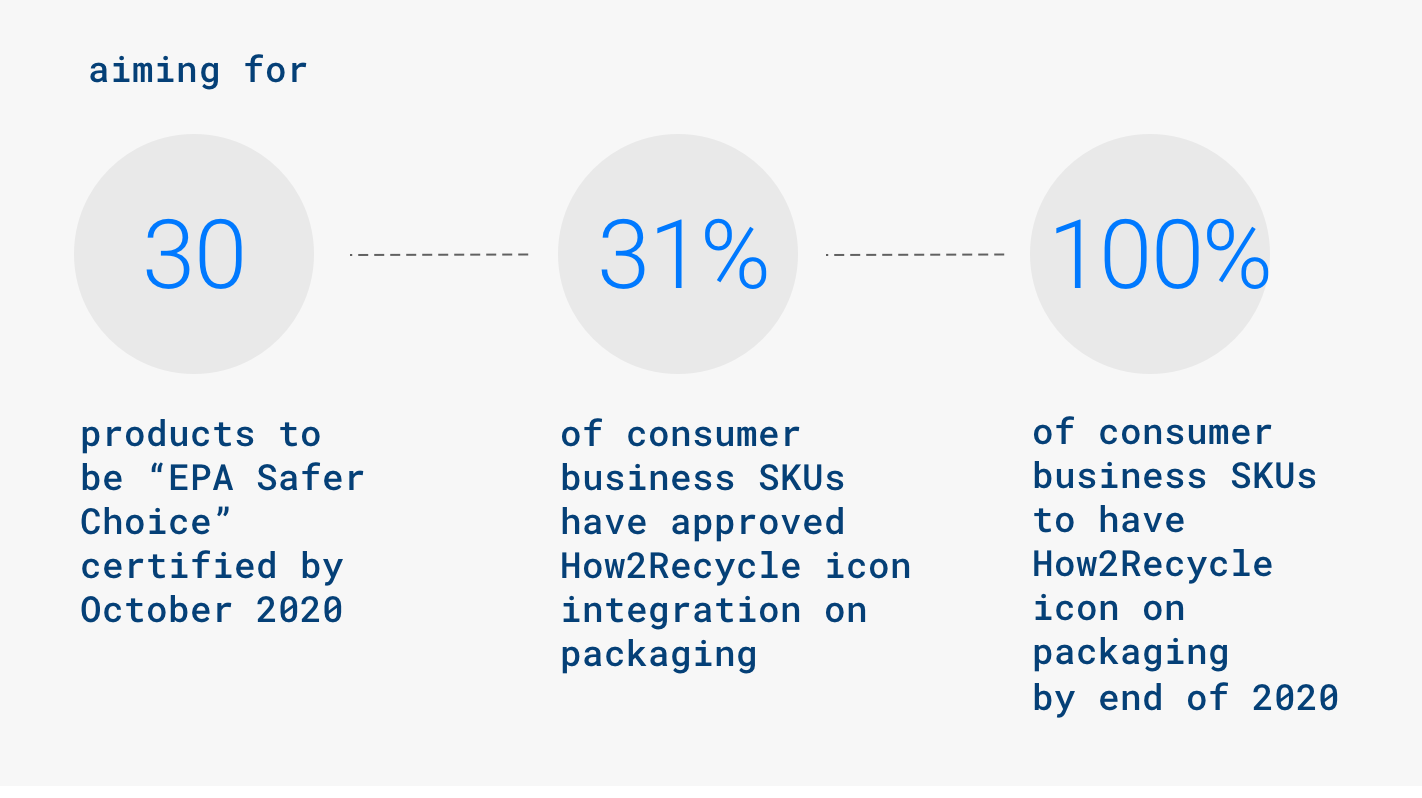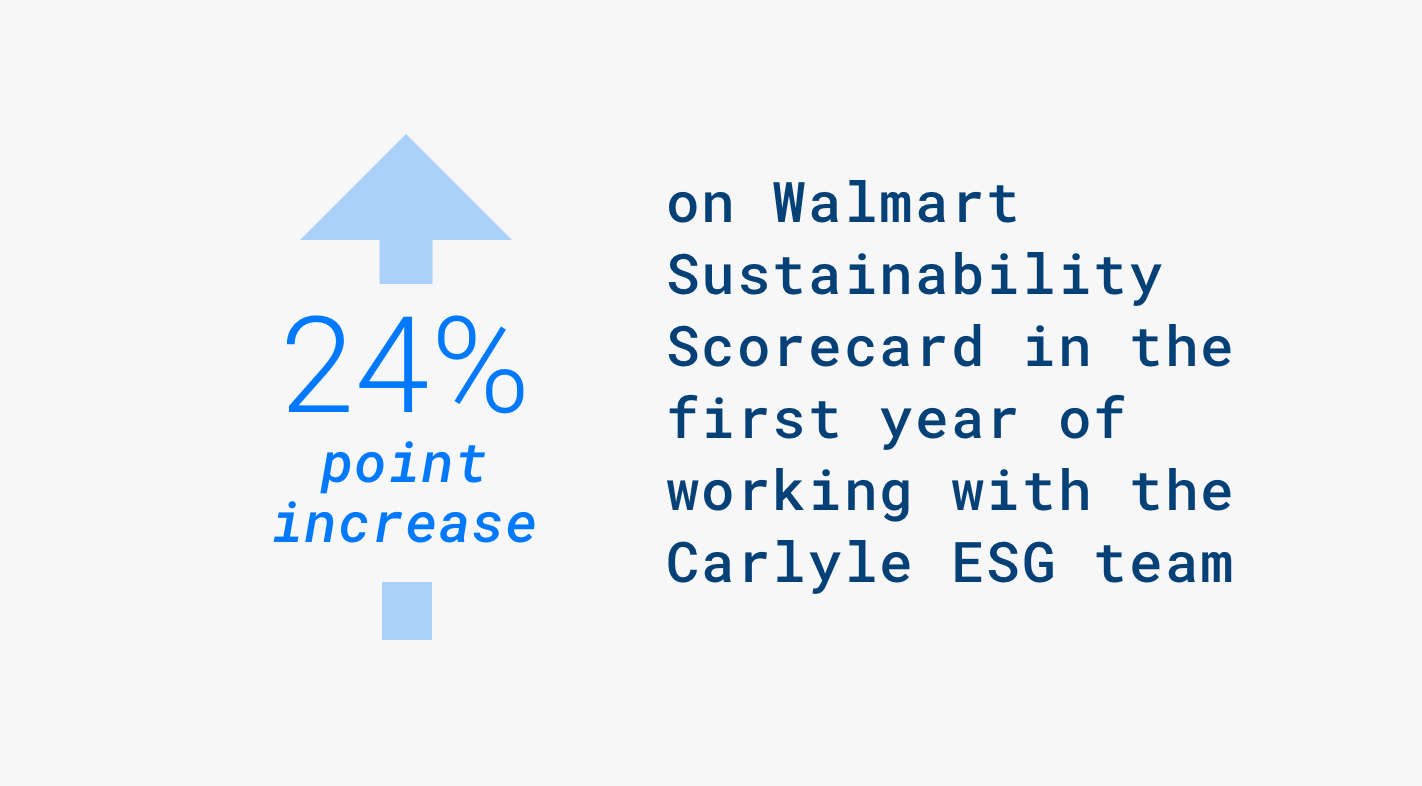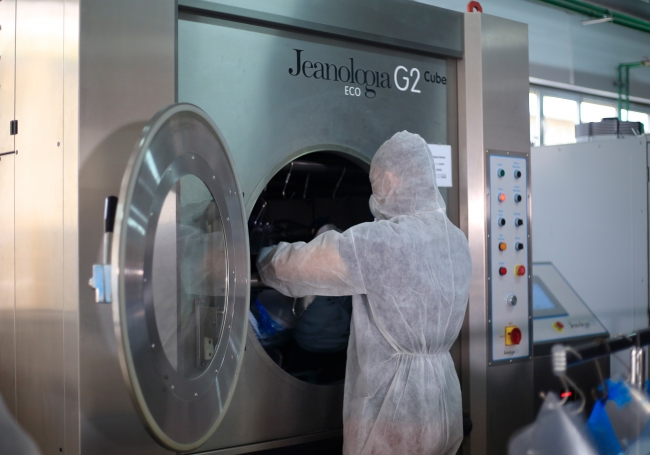
Sustainable Growth
Weiman
Greening Cleaning Supplies
In early 2019, when our deal team was looking into an investment in Weiman, they saw a strong operation and a leader in all manner of specialty cleaning products for the home. Our ESG team identified the key growth area for the company: a more-intentional focus on sustainable and safe-to-use products, in response to evolving consumer demand. The investment team agreed, and put a sustainability expert with a background in chemical engineering on the Company's Board of Directors from the outset.
Just 6 months into ownership, the Board approved a new sustainability strategy to drive product stewardship, reduce the manufacturing footprint, support employees, and advance community engagement. A focus on product stewardship led to getting Weiman’s product lines certified for their environmental attributes. Early conversations with our ESG team, third party experts on programs such as EPA’s Safer Choice, and Weiman’s own R&D team on major toxicity standards, such as the EU REACH and customer lists, led to changes in ingredients, as well as greater disclosure. As of April 2020 Weiman succeeded in having four products certified “EPA Safer Choice,” as well as all nine products sold at Target, a major customer, awarded the “Target Clean” icon. By October 2020 the goal is to have a total of 30 products “EPA Safer Choice” certified. On the packaging front, 31% of the consumer business SKUs to date have been approved for integrating How2Recycle icons on packaging to ensure consumers easily understand how to recycle each products’ packaging, and Weiman is on track for 100% of consumer SKUs to reflect How2Recycle icons by the end of 2020.
Key Goals & Stats:

The second objective was to add other greener alternatives to Weiman’s offerings through acquisition and internal innovation. In 2019, Weiman’s Urnex brand introduced BioCaf, a new line of greener cleaning products for commercial coffee machines that are natural, biodegradable, and contain no phosphates. Within that first year of ownership, Weiman also identified, diligenced, and purchased Bio-Kleen, a line of products that use enzymes to clean, as opposed to harsh solvents, avoiding Volatile Organic Compound (VOC) emissions and other toxicity issues. In 2020 Weiman closed on its purchase of Green Gobbler; a company bringing green, vinegar based products to historically harsh chemical categories like drain clog opening and weed killer. While Weiman had zero sales from green products in March 2019, by March 2020, through a combination of acquisitions and reformulations, 27% of the company’s sales were from green products. Additionally, Weiman joined the Green Chemistry and Commerce Council, and keeps looking for new, greener product lines to develop in-house or acquire.
Finally, Weiman continues to reduce its manufacturing footprint in order to position itself as the supplier of choice for its customers. Weiman has redesigned tank sequencing to reduce water use, installed LED light bulbs in their Gurnee, IL facility, and consolidated factories to reduce transportation-related emissions. The Carlyle ESG team, having developed expertise in our prior ownership of Vogue, helped Weiman improve its score on the Walmart Sustainability Scorecard, in part by helping Weiman carbon footprint its supply chain. The results were immediate and significant: Weiman’s score went up by 24% points in our first year of working together on the Scorecard, and crossed a key threshold – now sitting above the average of other suppliers.
Carlyle ESG Team + Weiman

Sustainability isn’t a side show for Weiman – it is substantive. By innovating to create greener specialty cleaners, Weiman has capitalized on a large and growing market. Sustainable products have in turn led to sustainable growth.
Carlyle believes these selected case studies should be considered as a reflection of Carlyle’s investment process, and references to these particular portfolio companies should not be considered a recommendation of any particular security, investment, or portfolio company. The information provided about these portfolio companies is intended to be illustrative, and is not intended to be used as an indication of the current or future performance of Carlyle’s portfolio companies. The investments described in the selected case studies were not made by any single fund or other product and do not represent all of the investments purchased or sold by any fund or other product. The information provided in these case studies is for informational purposes only and may not be relied on in any manner as advice or as an offer to sell or a solicitation of an offer to buy interests in any fund or other product sponsored or managed by Carlyle or its affiliates. Any such offer or solicitation shall only be made pursuant to a final confidential private placement memorandum, which will be furnished to qualified investors on a confidential basis at their request.


